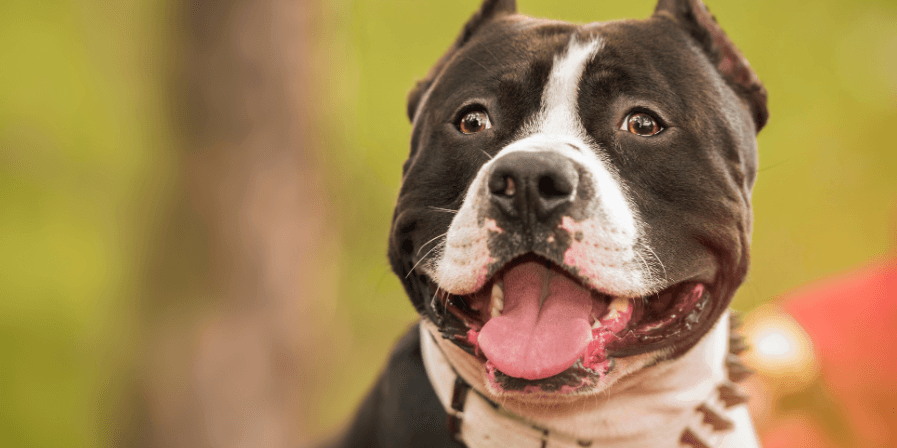Understanding the Pit Bull: Key Characteristics and Traits

Pit Bulls are a group of breeds known for their strength, loyalty, and affectionate nature. However, it’s important to clarify that "Pit Bull" is not a breed itself but rather a category that includes several breeds, the most recognized being the American Pit Bull Terrier.
Pit Bulls are a group of breeds known for their strength, loyalty, and affectionate nature. However, it’s important to clarify that "Pit Bull" is not a breed itself but rather a category that includes several breeds, the most recognized being the American Pit Bull Terrier. Despite common misconceptions, they can make wonderful family pets when raised and trained properly. This guide will help you understand the key characteristics and traits of Pit Bulls, as well as provide tips on grooming and care.
1. Key Characteristics of Pit Bulls
• Breed Group: Pit Bulls are part of the Terrier group, originally bred for bull-baiting and later as farm dogs.
• Appearance: They have a muscular build, broad chest, and short coat. Common colors include brindle, black, white, brown, and blue.
• Size: Pit Bulls typically weigh between 30-65 pounds and stand about 17-21 inches tall.
2. Temperament and Personality
• Loyal and Affectionate: Pit Bulls are known for their strong bond with their owners and can be very loving and affectionate.
• High Energy: They have a lot of energy and require regular exercise to keep them happy and healthy.
• Intelligent and Trainable: With proper training, Pit Bulls can excel in obedience and agility. They are eager to please but require consistent, positive reinforcement.
3. Pit Bull Grooming
• Coat Care: Pit Bulls have a short, smooth coat that is relatively low-maintenance. Regular brushing with a soft-bristle brush will help reduce shedding and keep their coat shiny.
• Bathing: Bathe your Pit Bull as needed, typically once a month or when they get particularly dirty.
• Nail Care: Regularly trim your Pit Bull’s nails to prevent overgrowth and discomfort.
• Ear and Dental Care: Clean their ears regularly to prevent infections and brush their teeth several times a week to maintain oral health.
4. Training and Socialization
• Early Socialization: Introduce your Pit Bull dog to a variety of people, places, and other animals from a young age to help them develop into well-adjusted adults.
• Obedience Training: Begin obedience training early, focusing on commands like sit, stay, and come. Positive reinforcement methods work best.
• Exercise Requirements: Pit Bulls need daily exercise, including walks, playtime, and mental stimulation, to prevent boredom and destructive behavior.
5. Health and Lifespan
• Common Health Issues: Pit Bulls are prone to hip dysplasia, allergies, and skin conditions. Regular vet check-ups and a healthy diet can help manage these risks.
• Lifespan: Pit Bulls typically live between 12-16 years with proper care and attention.
6. Misconceptions and Breed-Specific Legislation
• Misunderstood Breed: Pit Bulls often suffer from a negative reputation due to misconceptions about their temperament. Proper training and responsible ownership are key to raising a well-behaved Pit Bull.
• Breed-Specific Legislation: Some areas have laws restricting or banning Pit Bulls. Always check local regulations before bringing a Pit Bull into your home.
7. Pit Bulls as Family Pets
• Great with Children: When properly trained and socialized, Pit Bulls can be excellent companions for children, known for their patience and protective nature.
• Supervision: As with any breed, always supervise interactions between Pit Bulls and young children to ensure safety and positive experiences for both.
This guide offers a comprehensive overview of what it’s like to own a Pit Bull, from understanding their unique characteristics to ensuring they receive the care and training they need. With love, attention, and responsible ownership, Pit Bulls can be loyal, loving members of the family.
FAQ’s:
1. Are Pit Bulls naturally aggressive?
• No, Pit Bulls are not naturally aggressive. Their behavior is shaped by their upbringing, training, and socialization. With proper care and training, Pit Bulls can be loving and gentle pets.
2. What should I consider before adopting a Pit Bull?
• Before adopting a Pit Bull, consider their need for regular exercise, training, socialization, and potential challenges like breed restrictions or misconceptions about the breed.
For veterinary hospital near you, please call on 9311560101 or log on to dccpets.in.


 How can we help?
How can we help?